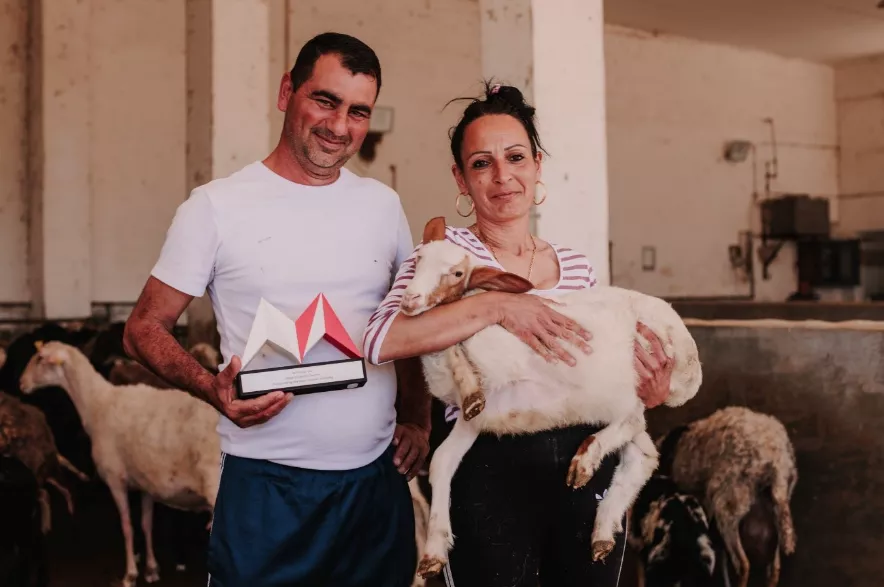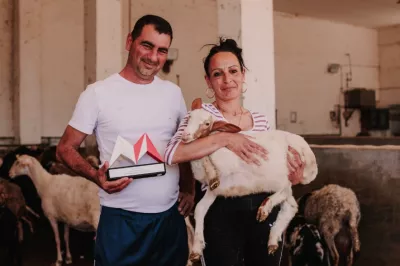Summary
The ‘Merill’ rural network was established in 2010 and recognised as a de facto social enterprise in 2012. The network supports its members by providing resources to develop strategies and diversify into rural tourism while preserving local traditions and promoting a circular economy. It further assists with members’ promotion of their unique brands and market links.
Results
- The ‘Merill’ rural network has steadily grown since its establishment with 30 active members and their families providing rural tourism services. Initially operating in Malta's north-west region, the network now covers the entire main island of Malta and plans to extend to Gozo in the future.
- The network's internship programme has involved over 40 international students who are typically employed for an average of three months. They contribute to daily operations and absorb crucial values for sustainable rural community engagement, which they carry forward into their careers.
- ‘Merill’ has successfully diversified income sources for farmers, breeders, and artisans through rural tourism which in turn has enhanced economic viability and sustainability in rural Malta.
- The network’s initiatives have fostered community cohesion and bolstered the local economy, bridging the gap between producers and consumers. Its efforts to revive and preserve traditional practices have attracted tourists, instilled local pride, and promoted environmental sustainability through responsible tourism and traditional agriculture.
- ‘Merill’ has effectively mitigated the adverse effects of overtourism while supporting Malta's countryside and achieving significant social and economic benefits for rural areas.
Resources
Documents
Context
The ‘Merill’ rural network operates within Malta's rural areas which need to address limited economic diversification, shortage of sustainable practices, and necessity to preserve local traditions. Maltese rural communities require assistance to expand their sources of income and to highlight local products.
Objectives
‘Merill’ works to strengthen the economic viability of rural areas while supporting environmental and cultural preservation by:
-
raising awareness of local agriculture and promoting sustainable farming practices;
-
enhancing the market value and demand for local products;
-
bridging the gap between producers and consumers through direct interactions;
-
preserving traditions and cultural heritage.
Activities, key actors, and timeline
-
Established in 2010 as an ecotourism venture, the ‘Merill’ rural network evolved into a hub-and-spoke model, with the hub serving as the network's core, providing coordination, resources, and support to the various spokes (rural communities and stakeholders).
-
This model supports local farmers, breeders, and artisans in rural Malta, fosters collaboration, ensuring that rural communities benefit from shared resources and expertise without being isolated.
-
The network received support under the LEADER programme of the European Agricultural Fund for Rural Development (EAFRD) to enhance competitiveness through substantial investments between 2012 and 2015. During this period, it laid the foundation for rural tourism in Malta and built trust-based relationships within the rural community.
-
In 2020, ‘Merill’ co-founded ‘Malta Rural Tours’ to boost local product promotion, and established stronger connections with academic institutions and like-minded companies. It launched initiatives such as Rural CSR (Corporate Social Responsibility) and an internship programme to further support sustainable practices and community engagement.
-
‘Merill’ requires members to operate genuine farms or workshops, promoting ‘100% local’ products and emphasising authenticity and quality tourism. It identifies stakeholders aligned with its criteria for sustainable rural tourism and supports them in diversifying their offers.
-
The network maintains the individual identities of its members and enhances their unique brands by facilitating the development of member-specific itineraries and services. It ensures that tourism services complement rather than overshadow product sales, thereby sustaining the integrity of both products and tourism experiences.
-
As a catalyst for rural economic growth, ‘Merill’ continuously provides tailored guidance and resources to navigate the tourism market while preserving traditional practices in Malta's rural communities.
Success factors/lessons learnt
-
Building strong relationships with members has been crucial in fostering collaboration and commitment to shared goals of the network.
-
Centralised coordination while maintaining members' unique identities has facilitated resource management and dissemination of best practices through the innovative hub-and-spoke model.
-
Prioritising authentic experiences and sustainable practices has created a unique value proposition that attracts tourists and supports local traditions. ‘Merill’ has used EU funding and strategies benefitting local communities to address challenges such as the undervaluation of agriculture, outdated local policies, and impacts of overtourism.
-
Re-investing profits into social objectives, such as responsible tourism, and promoting local agriculture has not only ensured Merill's economic sustainability, but also promoted long-term ecological health.
-
The hub-and-spoke model, community engagement strategies, and sustainable tourism practices are adaptable to diverse rural contexts. The network’s approach highlights the significance of community-based, sustainable development for achieving enduring rural prosperity and resilience.
Contacts
Borg Christian, christian@merill.com.mt, +356 99443118

